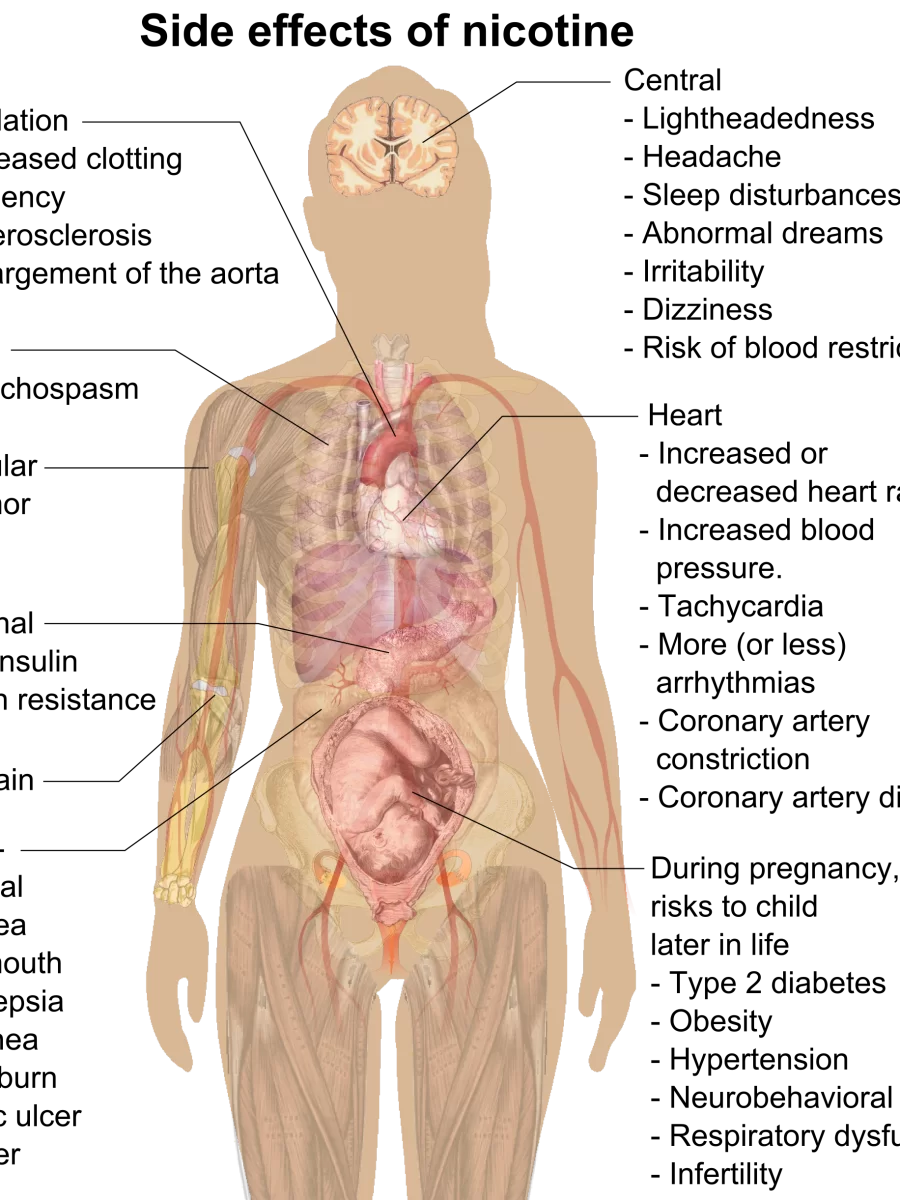Contents
Understanding the Devastating Consequences of Tobacco Use
Prof. Aécio D’Silva, Ph.D.
AquaUniversity
Smoking is the leading cause of preventable deaths globally. Nicotine, the primary addictive substance in tobacco, has been found to cause a variety of health problems ranging from lung cancer to heart disease
Despite the overwhelming evidence of the health hazards of tobacco use, smoking remains a major public health issue worldwide. Nicotine is the addictive substance in tobacco that hooks users and makes it difficult for them to quit. Smoking and the use of tobacco products have been linked to various diseases and conditions, including lung cancer, heart disease, stroke, respiratory diseases, and pregnancy complications. In this article, we will discuss the health effects of nicotine, tobacco, and smoking and the importance of quitting.
Health Effects of Nicotine
Nicotine is a highly addictive substance that stimulates the central nervous system and increases the levels of dopamine in the brain. However, nicotine use has been linked to several health problems, including:
- Addiction: Nicotine is highly addictive and can lead to physical dependence on tobacco products.
- Increased blood pressure: Nicotine can cause the blood vessels to constrict, leading to increased blood pressure and an increased risk of heart disease.
- Reduced lung function: Nicotine can cause the airways to narrow, reducing lung function and making it harder to breathe.
- Developmental issues: Pregnant women who smoke or use nicotine products have an increased risk of miscarriage, premature birth, low birth weight, and sudden infant death syndrome.
Health Effects of Tobacco
Tobacco contains thousands of chemicals, many of which are harmful to the human body. The health effects of tobacco use can be devastating, including:
- Lung cancer: Tobacco use is the leading cause of lung cancer, accounting for 85% of all cases.
- Heart disease: Tobacco use is a major risk factor for heart disease, which is the leading cause of death worldwide.
- Chronic obstructive pulmonary disease (COPD): Tobacco use is a major cause of COPD, a group of lung diseases that includes chronic bronchitis and emphysema.
- Dental problems: Tobacco use can cause tooth decay, gum disease, and tooth loss.
Health Effects of Smoking
Smoking is the most common form of tobacco use and is responsible for the majority of tobacco-related health problems. The health effects of smoking include:
- Respiratory diseases: Smoking can cause chronic bronchitis, emphysema, and other respiratory diseases.
- Cardiovascular diseases: Smoking is a major risk factor for heart disease and stroke.
- Cancer: Smoking is a major cause of lung cancer, but it has also been linked to other types of cancer, including mouth, throat, and bladder cancer.
- Reproductive issues: Smoking can cause fertility problems in both men and women and can also increase the risk of pregnancy complications and birth defects.
Quitting Smoking and Tobacco Use
The good news is that quitting smoking and tobacco use can greatly reduce the risk of developing tobacco-related health problems. Nicotine replacement therapy, prescription medications, and counseling can all be effective in helping people quit smoking. It’s important to remember that quitting smoking is a process and may require multiple attempts.
Nicotine, tobacco, and smoking are deadly trio that can cause a wide range of health problems. The only way to avoid these health hazards is to quit smoking and tobacco use. If you or someone you know is struggling with tobacco use, seek help from a healthcare provider, a support group, or a quit online. Always remember that God is most interested in you quitting smoking. Talk to HIM. You will have help greater than everything you need in this fight! See John 15:7
References:
- Centers for Disease Control and Prevention. (2021). Health effects of cigarette smoking. https://www.cdc.gov/tob






